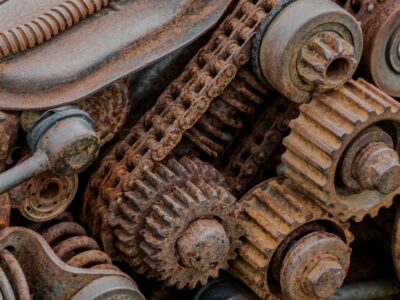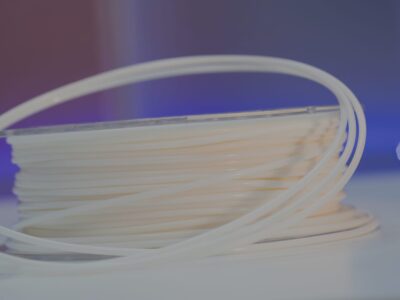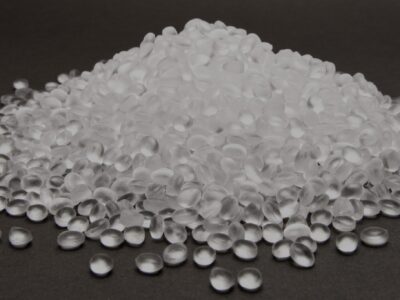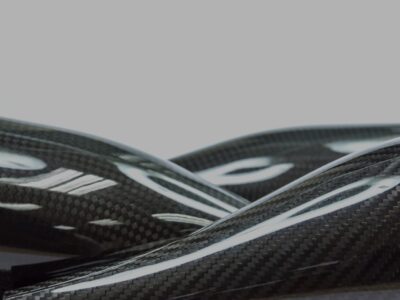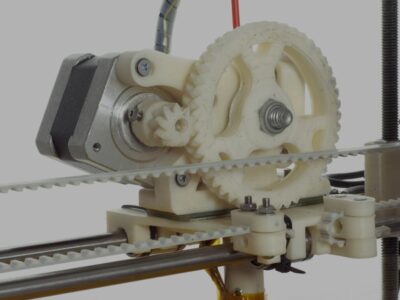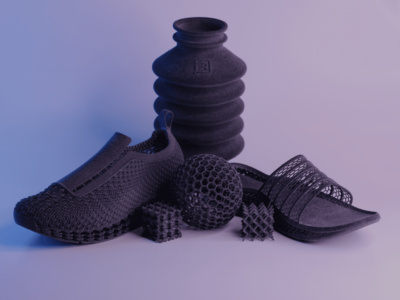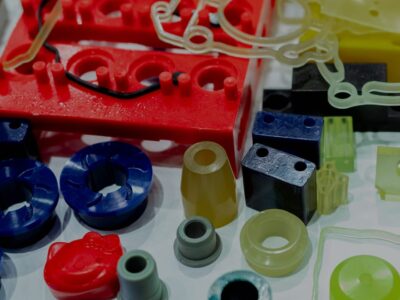Originally published on fastradius.com on September 9, 2020
How to Choose the Right Corrosion-Resistant Material
Material selection is a crucial part of any manufacturing process. Choosing the right material is so important because the material defines the chemical and mechanical properties of the component being manufactured, can significantly influence the longevity of the component, and ensures that part functions properly. Corrosion-resistant materials play a significant role in manufacturing because of their material properties and their lack of reactivity to harsh environmental conditions and chemicals.
For example, many aerospace components are manufactured using titanium, tungsten, and carbon fiber because these materials are very strong, yet lightweight and flexible. Unfortunately, these materials can react with one another and cause galvanic corrosion over time, localized corrosion where there’s an exchange of ions between materials. Here, corrosion-resistant materials preserve the integrity of parts in one of the most strictly regulated industries in the world.
From an environmental perspective, pollution-free solar and wind energy sources are vulnerable to harsh conditions and corrosion-resistant materials help protect their critical components from damage over time. This helps manufacturers safely build components for alternative energy sources and contribute to a more sustainable economy. For engineers looking to protect their parts from corrosive mediums like acids and salts, or UV degradation, here are the best corrosion-resistant materials to consider.
Examples of Corrosion-Resistant Materials
1. Stainless Steel
Stainless steel alloys are renowned for the corrosion-resistance, ductility, and high strength. Corrosion resistant qualities in stainless steels are directly tied to their chromium and nickel content — more of these elements correlate with increased resistance.
Most stainless steel alloys on the market today contain at least 18% chromium. When chromium oxidizes it forms a protective layer of chromium oxide on the surface of the metal part, which both prevents corrosion and prevents oxygen from reaching the underlying steel.

Since this material has a high melting point and can sustain and support high pressure, it’s also well-suited for construction, machine building, and manufacturing storage containers. 304, 430, and 316 stainless steel are the most commonly specified grades of stainless steel, with 316 being the grade of choice for harsh marine environments.
However, stainless steel’s durability and high corrosion-resistance come at a high price point, making them prohibitively expensive for some manufacturers. Also, stainless steel alloys can be difficult to work with, particularly in welding, because of their high melting point.
2. Aluminum
Aluminum alloys are non-toxic, 100% recyclable, have a high strength-to-weight ratio, have high thermal and electrical conductivity, and are easily machinable. Also, aluminum is unique because it’s one of the few materials that are naturally corrosion-resistant.
This material contains little to no iron so it cannot rust, though it can oxidize. When an aluminum alloy is exposed to water and oxidizes, a process called self-passivation, a film of aluminum oxide forms on the surface of the part and protects it from corrosion. Aluminum 5052-H32 is more corrosion-resistant than other varieties of aluminum and forms a bright, smooth finish.
This oxidation process can also be closely controlled through a process called anodization. Also, aluminum is unique because it’s one of the few innovative materials for additive manufacturing that are naturally corrosion-resistant. Anodization is a low-cost controlled finish that is widely used. This process also allows for color to be added to the part, allowing further customization for different use cases.
Aluminum is frequently used in aerospace applications, automotive body panels, salt-water sensitive applications, and other situations where a high-performance material is required. Manufacturers should consider using aluminum if they need an affordable corrosion-resistant material, while keeping in mind that aluminum fabrication can be messy and a hassle to work with.
3. Soft Metals
Soft metals, or red metals, include corrosion-resistant materials like copper and its alloys, brass and bronze. Copper is malleable, ductile, and an excellent conductor of heat and electricity. These metals can ensure corrosion resistance throughout the life cycle of a given component. . Copper won’t corrode over time; when it oxidizes, it forms a green outer layer called patina, which protects the part from further corrosion.
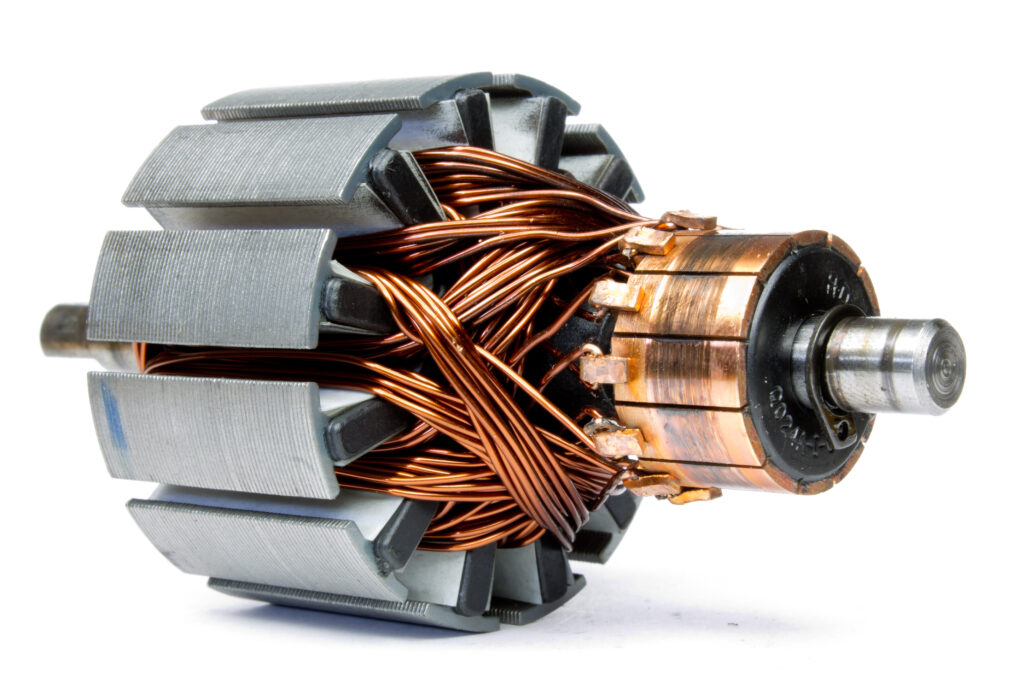
Copper also plays a key role in manufacturing parts for renewable energy systems. Since copper is such an excellent thermal and electrical conductor, systems powered by copper transmit energy more efficiently and with a lesser environmental impact.
4. Polypropylene
Metals aren’t the only corrosion-resistant materials available. Polypropylene, one of the most popular plastics in the manufacturing industry and is an especially common plastic for producing car parts. It’s also one of the most corrosion-resistant plastics.
This thermoplastic polymer resin has been nicknamed the “steel of the plastic industry” for its toughness, ability to withstand high levels of physical pressure, and resistance to a wide range of corrosive elements such as oil, solvents, water, bacteria, and more. High-density polypropylene (HDPE) offers higher tensile strength and an increased working temperature range.
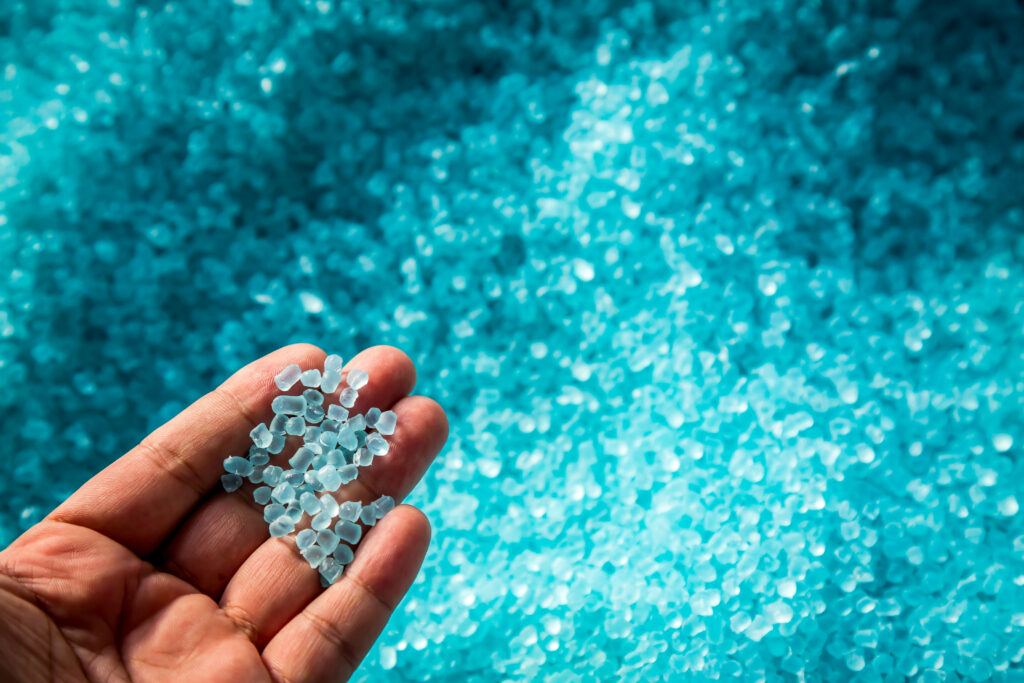
However, this material’s high flammability and high thermal coefficient limit its usefulness for high-temperature applications. Also, it’s important to note that polypropylene is susceptible to oxidation, UV degradation, and certain chlorinated solvents.
5. Polytetrafluoroethylene (PTFE)
PTFE, commonly referred to by its brand name Teflon, is a chemical- and corrosion-resistant engineering thermoplastic with the lowest friction coefficient of any known solid material. PTFE is hydrophobic, meaning it won’t absorb water, and has good electrical insulating power in both hot and wet environments.
PTFE is best-known for its commercial and medical applications — creating non-stick coatings for pots and pans and providing an anti-friction coating for medical and industrial applications. Thanks to its low friction, this material is used to manufacture bearings, gears, slide plates, seals, and other small parts that are critical to industrial applications. PTFE is also frequently used in carbon fiber and fiberglass composites.
Still, PTFE does have its limitations. This material is hard to join and it’s sensitive to creep, abrasion, and radiation. Also, fumes released by PTFE can be toxic in closed environments. It’s best to consult an experienced manufacturing partner before making any major decisions about materials.
Get Expert Advice on Material Selection
Corrosion-resistance is an extremely desirable trait, especially in the semiconductor, power, aerospace, and automotive industries. There is a wide range of corrosion-resistant materials to choose from, including the aforementioned five, and product teams must do their due diligence during material selection to ensure they’re fulfilling their unique project requirements.
An experienced digital manufacturing partner, like SyBridge, can help product teams answer the toughest questions throughout the product development process. Should you use metal or plastic? Is polypropylene just as good as stainless steel? Our team has years of experience navigating all things additive and traditional manufacturing, and we’ll help each customer choose the corrosion-resistant material that will protect their parts for the long-term. Contact us today to get started.
